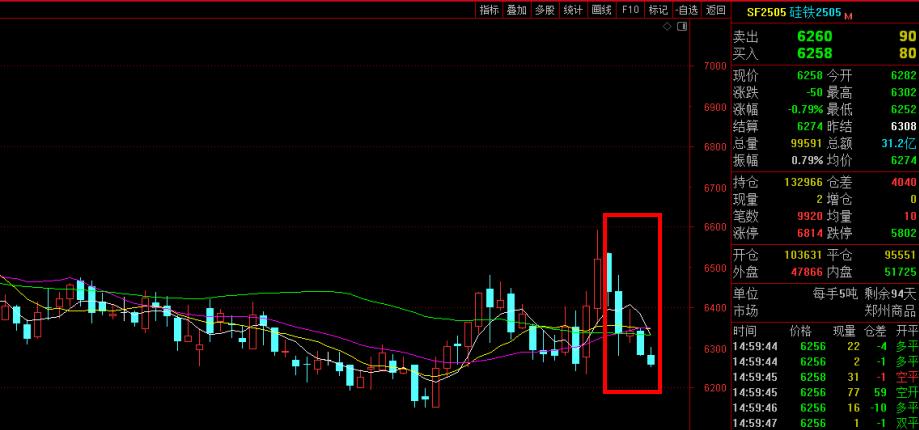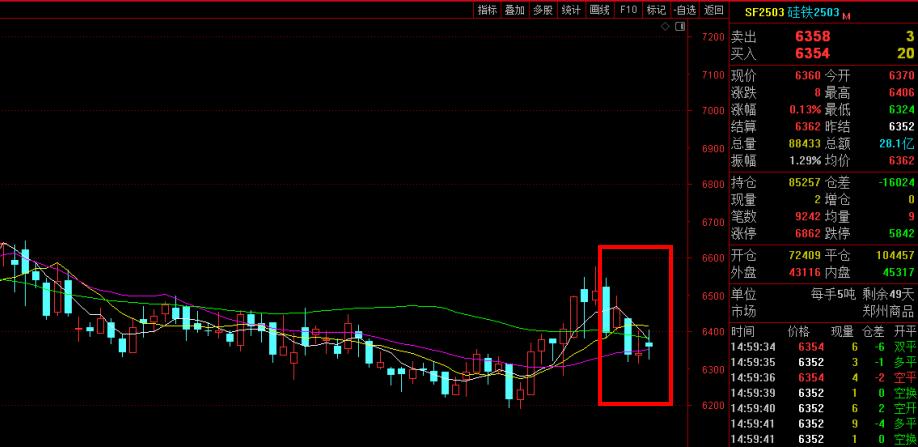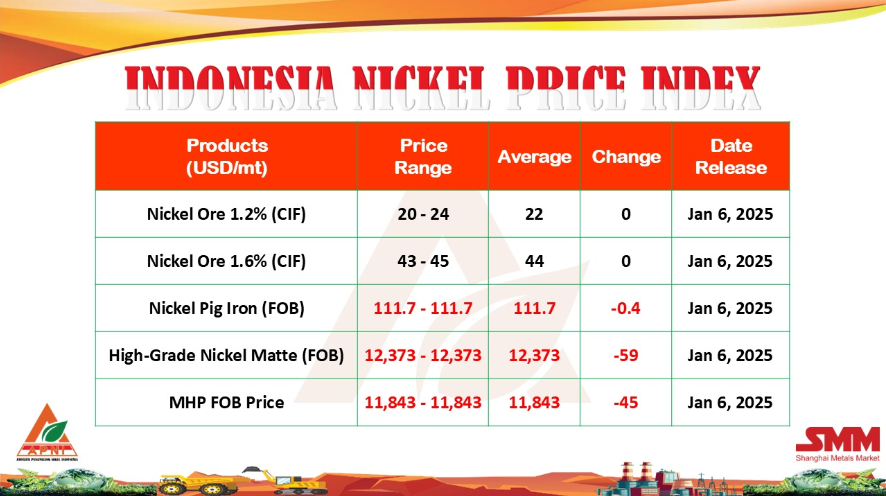Indonesia will be consistent in banning mineral-ore exports next year, as mandated by the 2009 Mining Law, and the government regulation would set processing and purification requirements before companies can export, a senior government official said.
R. Sukhyar, the newly appointed director general of coal and mineral resources at the Energy and Mineral Resources Ministry talked with the Jakarta Globe on Tuesday, almost two weeks before the Jan. 12 deadline, to clarify the government’s stance about the mineral-ore export ban.
Reports last month said the government would set exemptions, but that is not the case, according to Sukhyar.
“The law says mineral ore mined from Indonesian soil must be processed [domestically] and be purified. That’s clear, that means no more mineral-ore exports. That’s non-negotiable,” said Sukhyar, a veteran bureaucrat, who officially started his new position on Dec. 20.
The government regulation, he said, will regulate technicalities about the smelting and purification level for metals including copper, nickel, bauxite, tin, iron ore, manganese, gold, copper. It will also regulate the adding of value to non-metals, such as limestone, quartz and marble, before they can be exported.
Failure to comply would mean hundreds of registered mining companies could lose their licenses to operate.
Sukhyar, who started his career at the Energy Ministry in 1980 in the volcanology department, said even though the end result of the policy meant lower production, he said “it is a bitter pill that has to be swallowed.”
“Well, the logic is if they cannot export the mineral ore, why bother mining, right? I assure you, once the smelters are there the benefit in the future is bigger,” said Sukhyar, who got his PhD from Monash University in Australia in 1989.
Lower revenue in the short term
He said Indonesia’s foreign exchange revenue from ore exports may decline by $4 billion this year, and by $2.5 billion in 2015. But in 2017, such revenue from processed minerals such as copper cathode and aluminum may double from around the $4.9 billion estimated for this year.
He confirmed that construction has started on 28 smelters, and would most likely take about three years to complete.
When asked what would happen to contract of works holders, such as Freeport Indonesia and Newmont Nusa Tenggara, Sukhyar said that there is “no need for many excuses.
“Article No. 170 [of the 2009 Mining Law] is clear. They must purify the minerals. That means processing the ore into metal, not concentrate.”
Two articles in the law designed to change the landscape of the mineral sector’s activities in Indonesia were Article 103 and Article 170.
In Article 103, holders of mining business licenses (IUP) and a production operation mining business licenses (IUPK Operasi Produksi) must process and purify minerals mined in Indonesia. Article 170 states that contract of works holders must purify the minerals at the latest five years from the ratification of the law.
Currently, Freeport Indonesia, the local unit of US copper giant Freeport-McMoRan Copper & Gold, processes only about 40 percent of its ore mined in Indonesia at a smelter in Gresik, East Java, and that is the only copper smelter in the country.
The smelter is operated by Smelting, of which Freeport Indonesia owns a 25 percent stake.
Freeport-McMoRan said on its website that around 50 percent of its concentrates are sold to an affiliated smelter, apart from Smelting, and that there are also others like Atlantic Copper in Spain.
Being compliant
The company, which operates the Grasberg gold and copper mine in Papua, has made efforts to comply with the regulation by signing some memorandum of understanding to supply concentrates to some local smelting companies. Last year, it made such plans with Indosmelt and Indovasi Mineral Indonesia, both currently developing a total of $3 billion in smelting and refinery plants.
Indosmelt’s $1.5-billion plant is located in Maros, South Sulawesi, and Indovasi’s $1.5-billion plant may be located in Tuban, or Gresik, in East Java.
Last year, Freeport Indonesia president director Rozik B. Soetjipto said the company requested the government to postpone the ban as two local companies can only commission the plants in 2017.
Meanwhile, NNT, the local unit of US copper giant Newmont Mining, ships an average 20 percent to 23 percent of copper concentrate from its Batu Hijau mine to Smelting. The company signed conditional sales and purchase agreements with some local smelting and refinery companies. At the same time, it also faces the same obstacle: the plants are not ready.
In November, NNT set a conditional sales and purchase agreement with Nusantara Smelting to supply copper concentrate. Nusantara Smelting’s $1.2-billion plant will also be located in Gresik.
The project is scheduled for completion at the end of 2018 and will operate at full capacity in early 2019. In December, NNT also signed a similar pact with Indosmelt to supply copper concentrate in 2016.
Freeport and NNT have been resisting the idea of building smelters in Indonesia, saying the plan is not economically viable. They also say they plan to focus on ensuring massive projects to dig deeper into their mines.
Doubts linger
Sukhyar acknowledged that even though the law was ratified on Jan. 12, 2009, there are doubts the government will truly implement the export ban.
Natsir Mansyur, the president director at Indosmelt, told Jakarta Globe in December that one of the reasons for slow smelter development in Indonesia was because investors were not sure about the government’s firmness in implementing the law.
“Billions of dollars in investment would yield nothing if there is no assurance about the ban,” Natsir said, adding there has been limited information dissemination about the export ban from the government since 2009.
Erwin Aksa, the chief executive of Bosowa Corporation, also said last month that it plans to tap into the nickel smelter business, but is awaiting assurance from the government that it would firmly implement the ban.
“Some complained as to why the ministerial decree just came out in 2012. Some also felt they don’t have the competency in technology yet. The doubts have always been there, and it is only in the last minutes that they rush to settle things out.
“But I reiterate again, the government’s stance is final, no more mineral-oreexports,” said Sukhyar, who was a commissioner at state-owned tin miner Timah in 2002-08. He was also commissioner at Pertamina Geothermal Energy in 2005-08 and currently is the president commissioner at state miner Aneka Tambang.
Sukhyar said the government plans to introduce “maximum production limits” for minerals in each of the nation’s 34 provinces, so that smelters in the country would not become overwhelmed and be flooded by mineral-ore smelting requests.
Sukhyar, who was previously head of the geological division at the Energy Ministry before taking up his current role, said his ministry will work together with other government agencies, including the ministries of finance, trade and industry, to ensure the ban is implemented.
“We also plan to involve the governors [of the 34 provinces] to supervise whether the policy from the central government is implemented in their region,” he said.
He added the government is ready to accommodate any inputs from the mining industry association to ensure the upcoming government regulation can help minimize the negative impacts of the ban.
“For small miners, they can sell their output to domestic smelting companies, in case there are some disputes about the price, we will step in to intervene,” Sukhyar said.
Copyright © 2013 Ferro-Alloys.Com. All Rights Reserved. Without permission, any unit and individual shall not copy or reprint!
- [Editor:editor]



 Save
Save Print
Print Daily News
Daily News Research
Research Magazine
Magazine Company Database
Company Database Customized Database
Customized Database Conferences
Conferences Advertisement
Advertisement Trade
Trade














 Online inquiry
Online inquiry Contact
Contact

Tell Us What You Think